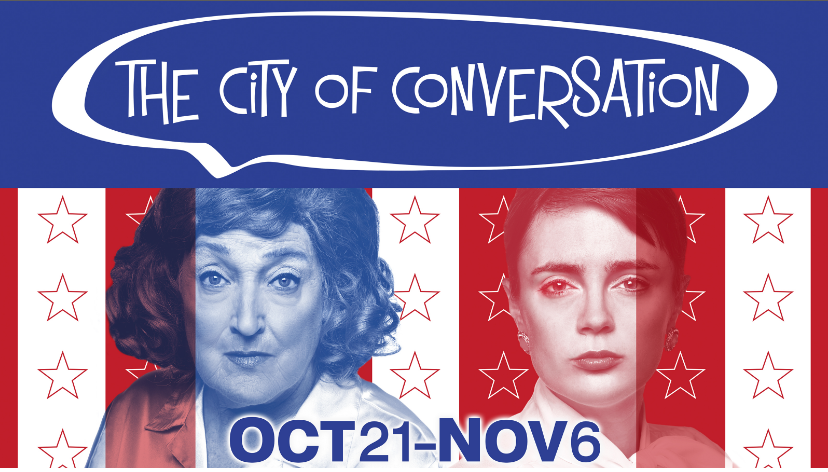
She said/She said
The City of Conversation is a sharply-written slice of political drama nested in a family crisis. It’s essentially the story of liberalism at the end of the 20th-Century as Reaganite barbarians stormed the New Deal’s crumbling gates. The tale — told from the perspective of a politically split Georgetown family — wants to map polarization, and the end of civility in American discourse. Set apart from issues, or the social conditions that caused so much fissuring in traditional party lines, it becomes an exercise in scapegoating, and misplaced congratulations. There are plenty of fresh ingredients assembled here, but the spice blend is flat wrong.
As usual Jack Yates’ sets dazzle and Amie Eoff’s period costumes pop under the lights. There’s at least one extraordinary performance to crow about too, and a few good ones worth bragging on. But the cast is unbalanced in terms of ability, and when the play staggers, author bias becomes evident. So does an unmistakable streak of weird woman-blaming.
[pullquote-1] The unwritten “Georgetown rule,” once held that, no matter how bitterly Beltway rivals fought at work, evenings were for collegiality, cigars, and dick jokes told over highballs at boozy, loose-talking soirees like the ones hosted by Hester Ferris — crisply played at Theatre Memphis by Karen Mason Riss. Hester’s the tireless influencer we meet at the top of the play, working on Teddy Kennedy’s disastrous primary run against sitting president Jimmy Carter— a bitter affair opening doors for Reagan & Co. Her plans are upended when son Colin arrives home a day early from college, with Anna, the ambitious conservative he plans to marry.
Playwright Anthony Giardina romanticizes Georgetown as a kind political Eden, turning Anna — beautifully and savagely imagined by Shannon Walton — into an Eve-like temptress offering the apple of Reaganism to any powerful man who’ll sits still long enough. Eventually — and inevitably — she squares off against Hester, tearing the family apart. That’s where The City of Conversation’s metaphors break down. Because women didn’t queer the fraternity. And whether the script is blown up to mythic scale, or boiled down to microcosm, turning a contrived standoff between two stubborn, differently corrosive women into a model for polarization is, quite possibly, the biggest dick joke that ever was.
From casting to set details, this City has director Jerry Chipman’s fingerprints all over it. That’s normally not a bad thing, but in this case it means seeing familiar faces working well inside their comfort zones. That yields some positive results — It’s great to see Michael Walker back on stage, fully inhabiting the skin of a changeable Kentucky Senator. But as Hester, Riss — a JC regular — speaks well, but seems adrift. Granted, she’s better adrift than a lot of actors are fully focused. But here, in a play where victories don’t necessarily produce winners, and true heroes are hard to come by, her frank, no-bullshit style falls a little flat.
Given 30-years worth of Presidential comment to choose from City‘s sound design makes American politics seem boring, if not exactly uneventful. So much potential, little of it realized.
But damn, it’s so good looking.